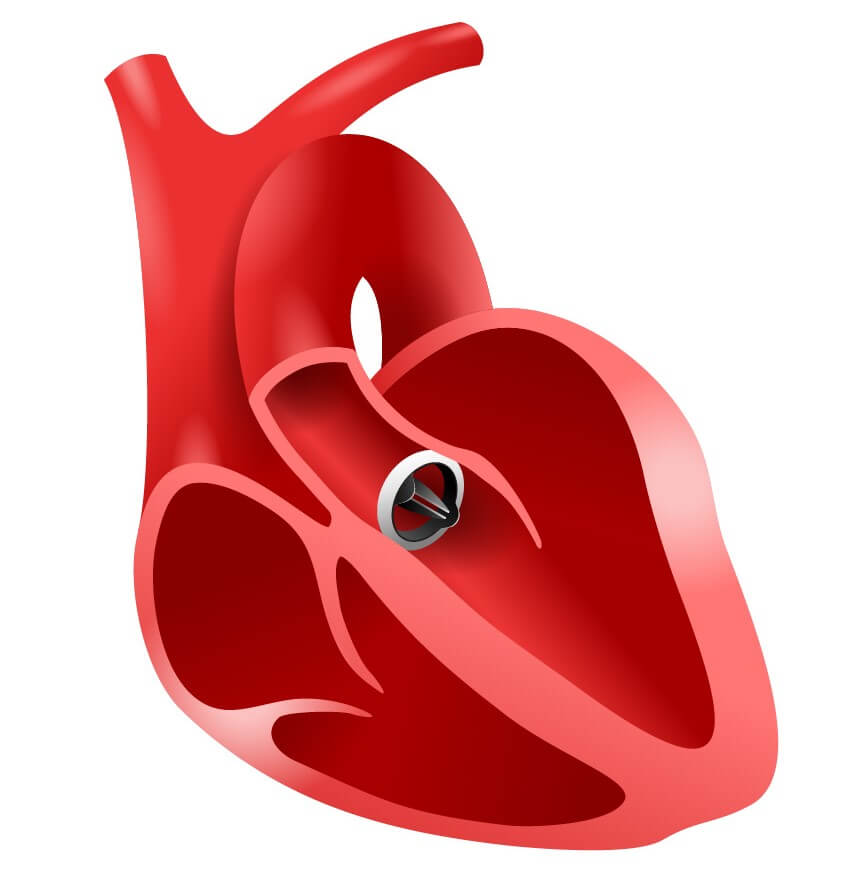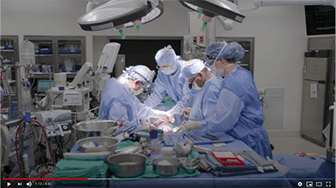Heart valve replacement surgery is performed on patients suffering fromvalvular heart disease. To treat severe malfunctions of the heart valve, surgical procedures are conducted to replace heart valves with a tissue valve or a mechanical valve.
Heart Valve Replacement Surgery – Who needs it?
Patients diagnosed with stenosis or regurgitation
( incompetence of the valves)of the heart valvesare generally asked to undergo this surgery. Heart valve diseasemay causechest pain ,shortness of breath, fatiguabity, exercise intolerance, palpitations .patients suffering fromvalve stenosis or incompetence should undergo thourough evaluation using ecg , echocardiogram, cardiac CT, stress echocardiogram to accurately asssessthe problem. Our Cardiologist DrVithalBagi will evaluate and quantify the severity of the heart valve disease. He will guide you as to when to operate and what kind of thevalve will be suitable for the patient with valve problems.
Diagnosis for Valve Replacement Surgery
To diagnose and treat valve disease the following tests are recommended by the best heart doctor in Bangalore.
- Echocardiography
- Magnetic resonance imaging (MRI)
- Cardiac catheterization
- Transesophageal echocardiography
- Cardiac CT
Types of Valve used for Valve Replacement Surgery
Mechanical, Tissue, and Homograft valves are some of the common varieties used. Biologic valves are also used in some patients. Patients suffering from mitral valve disease also need their valves to be repaired or replaced. Narrowed mitral valve most of the timescan be treated with balloon valve dilation withoutsurgery. Diagnosing the heart valve disease and quantifying their severity is the key step in deciding the most appropriate treatment for the heart valves.
Preparations for Valve Replacement Surgery
A complete clinical evaluation is mandatory before surgery. The patient will then be asked to fast for 8 hours before the surgery. The best heart doctor in Bangalore would also enquire about your medical history and overall health status before proceeding.The Echocardiogram is the main diagnostic modality to find out the cause of the valve disease, assessing the severity and to decide what kind of treatment.
Procedure for Valve Replacement Surgery
Heart valve surgeries are generally done under general anaesthesia on ventilator. Repair or replacement are done under general anaesthesia. Balloon dilatation of the mitral valve stenosis is done under local anaesthesia without surgery.
TAVI or TAVR is another latest way of replacing the valve in aortic position percutaneously without anesthesia or surgery
Post-procedure care/Recovery care for heart Valve Replacement Surgery
Owing to the complexity associated with the process, post-surgery care is extremely important. The patient is kept in ICU for 2 to 3 days and he/she is required to stay in the hospital for 10 to 15 days. Recovery can take a few weeks to months, depending on the patient’s age and health condition.
Advantages of Valve Replacement Surgery
- Increased life expectancy
- Better quality of life
- Minimum or reduced symptoms of a heart ailment
Why Choose Dr.Vithal. D. Bagi Heart Centre?
Dr. Vithal D. Bagi is a famous cardiologist in Bangalore and has years of clinical experience. He has outstanding competence to handle all kinds of heart diseases. He is also known for offering superior quality care at the most affordable rates. He is serving as the Consultant Cardiologist in Apollo hospitals Bannerghatta road and Apollo hospitals Jayanagar for more than seven years.
FAQ’s
1. How long does a replaced heart valve last?
Depending on the patient’s age and health condition, metallic valves have life span of more than 40 years ( unless valve thrombosis or infection happens). Tissue valve are preferred on elderly and those who can’t take blood thinners they can last for 15 years.
2. Is heart valve replacement surgery permanent?
Yes , replaced valve will function for more than 15 to 25 years.
Rarely patient may need redo surgery if there is valve thrombosis or infective endocarditis. depends on the seriousness of the heart problem.
3. What is the recovery time for heart valve replacement surgery?
Total recovery may take a few weeks to a month. In many cases, patients can return to normal life within a month. However, regular monitoring is suggested to ensure good health.
4. Is Heart Valve Surgery a major surgery or minor surgery?
Heart Valve Surgery is major surgery.
5. What are the indications of Heart Valve Surgery?
Famous cardiologists in Bangalore may consider replacing the valve of it is severely damaged otherwise mild to moderate diseases of the valves can be managed with medicines. Rheumatic, degenarative( age related), congenital ( by birth defects) leading to severe narrowing or incompetence of the valves are the common indications for surgery.
6. What can I expect after heart valve surgery?
Those with metallic valve must and should take old thinners ( anticoagulant) for life long . Those with tissue valve should take blood thinners for atleast six months after the surgery. They should do periodic follow up yearly once with echocardiogram.
They should take antibiotic prophylaxis before dental or other surgical procedures as per cardiologist advise.














 Consultant cardiologist in Apollo hospitals Banerghatta road and Apollo hospitals Jaynagar from 2013 to present.
Consultant cardiologist in Apollo hospitals Banerghatta road and Apollo hospitals Jaynagar from 2013 to present.





